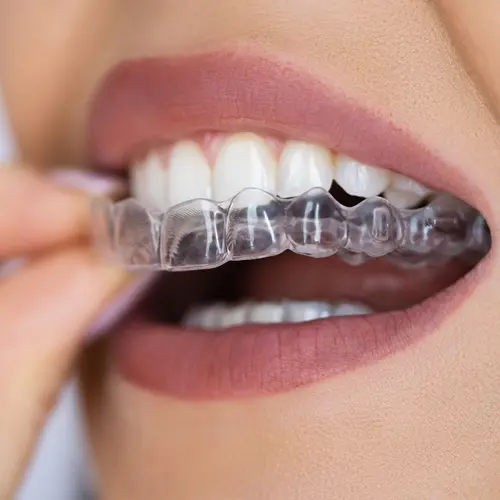Like many of our wintertime holidays, Halloween -- with its candy and parties and excess -- could be seen as a glutton's paradise. But that's part of its attraction. It's a child's holiday -- dress up in funny outfits and eat too much candy. It's also a holiday that puts parents in a bind. Let them eat till they're sick or be a killjoy who runs around confiscating a child's Reese's Cups?
Moderation and rules are not characteristics we often associate with Halloween, but, say child health experts, the holiday can be a good time to teach your kids important lessons about nutrition and dental care.
"On the positive side, if you let them eat it all at once, they'll get rid of it," says Jim Steiner, DDS, a dentist who practices at the Cincinnati Children's Hospital in Ohio. "Nutritionists would hit me over the head for saying so, but from the dentist's perspective it's best to get it all over at once, so the kids don't get endless exposure to acid-forming bacteria."
And Steiner is right. Dietitians are never in favor of parents aiding and abetting a major binge, even if it is a holiday.
"I don't want to come across as a stick-in-the-mud," says Maureen Kilfoil, RD, LD, a dietitian who, like Steiner, works at Cincinnati Children's Hospital. "It's a fun holiday and kids should be able to enjoy it. But parents need to curb kids' tendencies to overdo it. Parents need to be parents and set the rules. Let them have their treats, but put some limits on their consumption."
Avoid Tooth Decay
"In general, I tell parents that kids who eat many times a day are at higher risk of tooth decay," says Steiner. "It's the kids who have access to sippy cups or snacks all the time that are at high risk for tooth decay. It's that kind of chronic exposure that causes [cavities.]"
And that's why Halloween is a problem with the dental profession. Some children will hoard their favorite candies and eat them a little bit at a time over a long period of time.
"I always tell parents that they should try to encourage their kids to limit eating to breakfast, lunch, dinner and two snack times," says Steiner. "And drink water between meals. Most water systems in the U.S. have added fluoride. When we drink water, it helps by washing some acids out of our mouths and it also supplies fluoride, which protects against decay."
Children should brush three times a day for two minutes and rinse with a fluoridated mouth rinse, according to the American Academy of General Dentistry. Fluoride treatments, applied directly onto teeth, are also available in any dentist's office.
Steiner says he recommends children have their first checkup between one and two years of age with a pediatric dentist.
Discuss Obesity
Of course, nutrition and weight came up in any discussion of children having unlimited access to candy.
"I would never tell kids they can't eat their Halloween candy," says Kilfoil. "But I would recommend that parents start telling their kids a few days before Halloween that they can have one or two pieces of their candy after meals."
Kilfoil says Halloween provides a good opportunity for parents and children to talk about eating right and maintaining a healthy weight.
"A lot of our children are becoming obese or are at risk for obesity, and holiday times too often send the message that overeating is OK," she says.
Obesity is the leading cause of pediatric high blood pressure and type 2 diabetes. The CDC reported in 2000 that 15% of American children aged 6 to 19 are overweight, up from 11% from a survey conducted from 1988 to 1994. The prevalence of obesity in the young varies by ethnic group. Childhood obesity is more common amongh African-American and Hispanic kids than among whites.
Kilfoil says that one Halloween-candy strategy parents can try is to go through their children's haul and try to weed out the candy that has high fat content.
"Candy that is all sugar isn't all that much better, but at least it has fewer calories," she says.
Parents need to be as concerned about their children's weight as they would be about a food allergy.
"The message we want children to take away is that moderation is good," she says. "It's fine to have your candy, but have it with meals. You don't have to eat to excess to enjoy the holiday."

